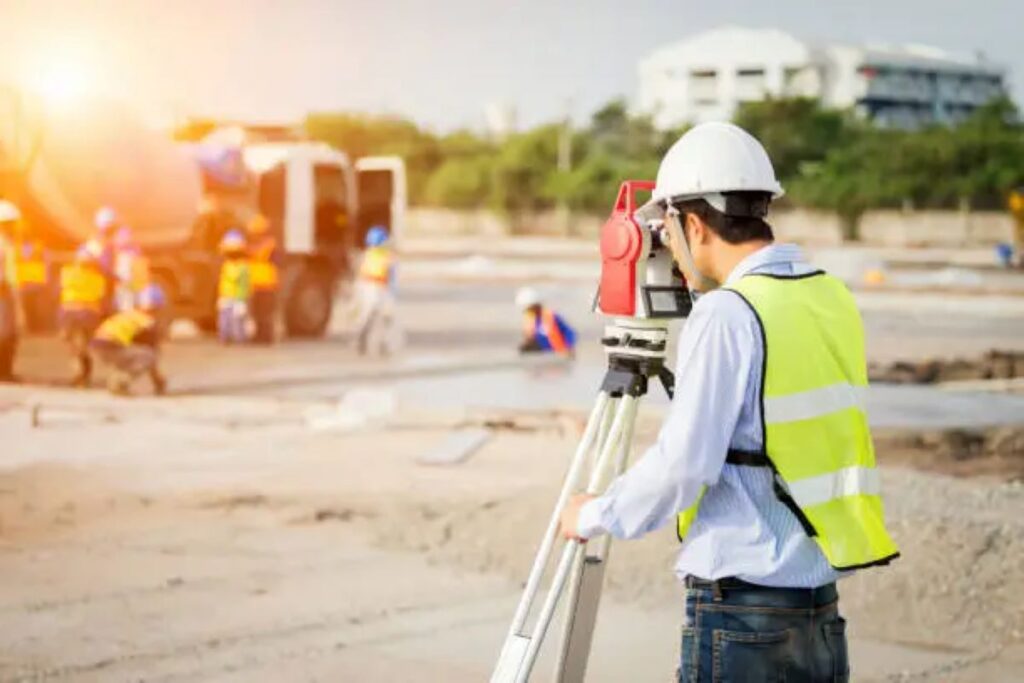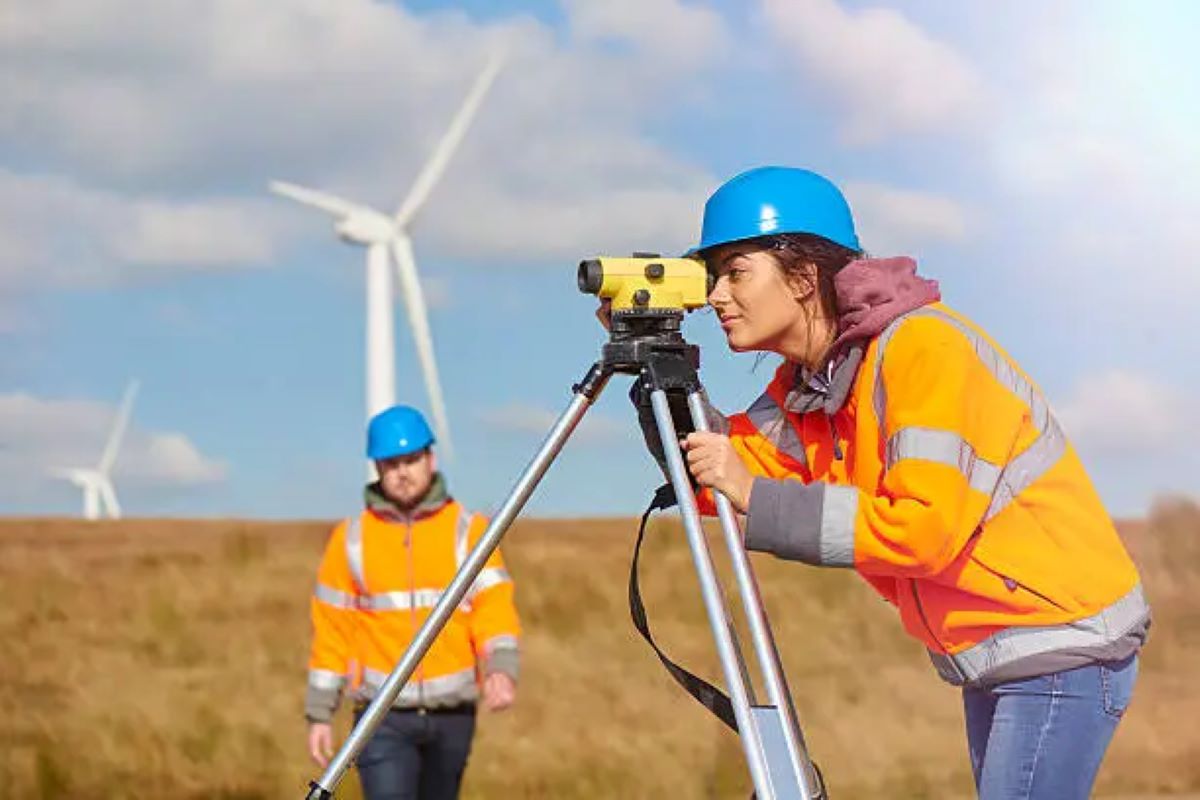Survey engineering is an essential discipline within the fields of engineering and construction, significantly contributing to the successful execution of various projects. The role of a survey engineer combines technical expertise with practical fieldwork to ensure that land is accurately measured and described. In this article, we will explore the primary responsibilities, required skills, and career opportunities for survey engineers, providing you with a deeper understanding of what this profession entails.
Introduction to Survey Engineering
Survey engineering is the practice of measuring and mapping land, which serves as the foundation for engineering and construction projects. Survey engineers play a pivotal role in determining land contours, property boundaries, and the geometry of structures, ensuring that projects adhere to legal and regulatory standards. They utilize a blend of modern technology and traditional techniques to carry out their tasks efficiently.
This profession is crucial in various sectors, including construction, civil engineering, and environmental services. Survey engineers are often involved from the initial planning stages of a project, advising on spatial constraints and complexities that could affect design and execution. Their work ensures that projects are completed on time, within budget, and to the standards expected by stakeholders. Beyond the technical aspects, survey engineers also engage with clients and the public, often explaining complex data and findings in understandable terms, which fosters trust and transparency in the surveying process.
Key Responsibilities of a Survey Engineer
Survey engineers have a diverse range of responsibilities that encapsulate both fieldwork and office tasks. One of their primary duties involves conducting land surveys to establish property lines and boundaries for owners, contractors, and governmental agencies. This requires a keen understanding of legal principles related to land ownership and property rights. In addition to boundary determinations, survey engineers must stay updated on local zoning laws and regulations, as these can significantly influence project feasibility and design.
Aside from boundary determinations, survey engineers are tasked with gathering data essential for designing infrastructure projects. This could include topographic surveys that map elevations and terrain changes, which are crucial for roads, bridges, and drainage systems. They frequently work alongside architects and civil engineers to provide detailed land assessments that influence design decisions. Furthermore, survey engineers often conduct environmental assessments to evaluate potential impacts on ecosystems, ensuring that projects comply with environmental regulations and promote sustainable practices.
Tools and Technologies Used in Survey Engineering
To perform their responsibilities effectively, survey engineers utilize a variety of advanced tools and technologies. Traditional tools such as the theodolite and tape measure remain important, but modern survey engineers predominantly rely on tools like Global Positioning System (GPS) devices, laser scanners, and Geographic Information Systems (GIS).
GPS technology allows survey engineers to conduct surveys quickly and with high precision, making it a cornerstone of modern surveying methods. Laser scanning, on the other hand, provides highly detailed 3D models of environments, which can be critical in complex project situations. GIS technology helps survey engineers analyze and manage spatial data, thus enhancing decision-making processes. Additionally, the integration of drones in surveying has revolutionized the field, allowing for aerial surveys that capture vast areas efficiently and provide data that is difficult to obtain through traditional methods. This technological advancement not only speeds up the surveying process but also enhances the accuracy and detail of the information collected, paving the way for innovative solutions in land development and management.
Educational Requirements for Survey Engineers
To become a survey engineer, individuals typically need a bachelor’s degree in surveying, civil engineering, or a related field. Coursework in mathematics, physics, and computer science, coupled with practical experience through internships, prepares aspiring survey engineers for the technical aspects of their profession. In addition to foundational subjects, students often engage in specialized courses that cover topics such as geodesy, photogrammetry, and geographic information systems (GIS), which are crucial for modern surveying practices. These advanced topics not only enhance their technical knowledge but also provide them with a competitive edge in the job market.
Following their formal education, many regions require aspiring survey engineers to obtain licensure. Licensing involves passing examinations that demonstrate knowledge and competence in surveying principles, laws, and ethics. Continuous education is also crucial in this field, as technologies and regulations are constantly evolving. Many professionals choose to pursue certifications from recognized organizations, which can further validate their expertise and commitment to the field. This ongoing education often includes attending workshops, seminars, and conferences, where survey engineers can learn about the latest advancements in surveying technology and methodologies.
Skills Necessary for Success
Success as a survey engineer hinges on a blend of technical and soft skills. Technical skills include proficiency in using surveying instruments and understanding complex mathematical concepts. Survey engineers must also be adept at interpreting and creating technical drawings and maps. Familiarity with software tools such as AutoCAD and various surveying applications is increasingly important, as these technologies streamline the design and analysis processes, allowing for more accurate and efficient project execution.
Additionally, strong analytical skills are necessary for evaluating survey data and making informed decisions regarding project plans. Communication skills are equally vital, as survey engineers must collaborate effectively with clients, stakeholders, and other professionals involved in the project. This collaboration often requires the ability to convey complex technical information in a clear and understandable manner, ensuring that all parties are aligned and informed throughout the project lifecycle. Furthermore, problem-solving skills play a critical role, as survey engineers frequently encounter unexpected challenges that require quick thinking and innovative solutions.

Career Opportunities in Survey Engineering
The demand for skilled survey engineers is increasing as urban development and infrastructure projects expand. Survey engineers can work in various settings, including governmental agencies, construction companies, and consulting firms. Their expertise often leads them to positions that involve project management and team leadership as they gain experience. As they progress in their careers, survey engineers may find themselves overseeing large-scale projects, coordinating with diverse teams, and ensuring that all surveying activities align with regulatory standards and client expectations.
With additional training and specialization, survey engineers can transition into roles involving land use planning, environmental assessment, or real estate development. Some may even choose to start their own surveying businesses, providing services directly to clients. The entrepreneurial route can be particularly rewarding, as it allows survey engineers to leverage their expertise to build a brand and establish a loyal client base. Additionally, as sustainability becomes a more pressing concern, survey engineers with knowledge in green building practices and environmental impact assessments are increasingly sought after, positioning them at the forefront of innovative developments in the field.
The Future of Survey Engineering
The future of survey engineering is bright, especially with rapid advancements in technology. The integration of drone surveying, robotics, and remote sensing is reshaping how land surveys are conducted. These technologies provide not only increased efficiency but also enhance the accuracy of measurements, which can significantly impact project outcomes.
As the industry evolves, survey engineers will need to continuously adapt to new tools and methodologies, underscoring the importance of lifelong learning. The ability to incorporate new technologies into traditional survey methods will set successful survey engineers apart in a competitive job market.
Adapting to Change
With the introduction of artificial intelligence and machine learning, the future of survey engineering will also involve greater data analysis capabilities. Survey engineers will increasingly be expected to work with large datasets and contribute to data-driven decision-making processes that influence project planning and execution.
Moreover, the growing focus on sustainability and environmental consciousness in engineering projects places survey engineers in pivotal roles, as their work directly contributes to informed land use that minimizes environmental impacts. Awareness of conservation practices and regulations will be increasingly critical.
Conclusion
Survey engineering is a multifaceted profession that combines technology, science, and hands-on skills in measuring and mapping land. With a strong educational foundation and a commitment to adapting to new advancements, survey engineers play an integral role in the successful completion of various projects. If you aspire to embark on a career as a survey engineer, embracing the necessary skills and continually seeking growth will ensure you thrive in this dynamic field.
See Also : Hiring a Surveyor in Sydney: What You Need to Know Before You Start

